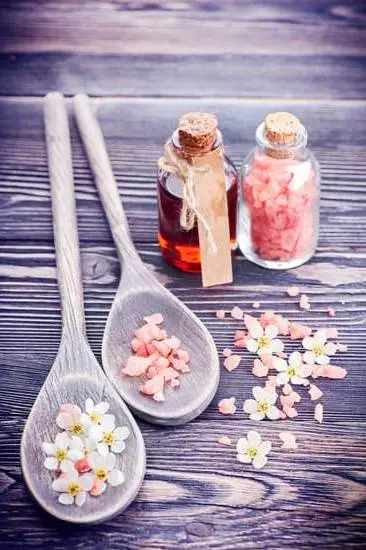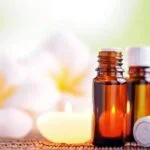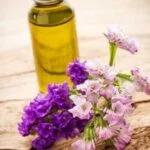Aromatherapy, the use of essential oils to promote holistic well-being, has garnered significant attention as a potential treatment for anxiety. In recent years, there has been a growing interest in exploring the effectiveness of aromatherapy in alleviating anxiety symptoms and promoting relaxation. This introductory section will provide an overview of the reasons behind this increasing interest and set the stage for a comprehensive exploration of aromatherapy’s potential benefits for anxiety relief.
Anxiety disorders affect millions of individuals worldwide, causing distressing physical and emotional symptoms that can significantly impact daily life. While traditional treatments such as therapy and medication have proven effective for many people, there is an ongoing search for alternative or complementary approaches that may provide additional relief. This has led many individuals to explore natural remedies like aromatherapy as a potential solution.
The allure of aromatherapy lies in its ability to harness the power of scent to influence our emotions and overall well-being. Essential oils derived from plants are carefully distilled to capture their unique aromatic compounds, believed by some to possess therapeutic properties.
From lavender and chamomile to bergamot and ylang-ylang, these oils have long been associated with relaxation, stress reduction, and mood enhancement. With anecdotal evidence suggesting positive outcomes and an increasing body of scientific research exploring its potential effectiveness, it comes as no surprise that aromatherapy has captured the curiosity of those seeking natural options for anxiety relief.
As research advances and more individuals turn towards alternative therapies for managing anxiety, understanding the science behind aromatherapy becomes vital. The next section will delve into the theory and mechanism behind how essential oils interact with our bodies, shedding light on why aromatherapy holds promise as a potential remedy for anxiety relief.
The Science behind Aromatherapy
Aromatherapy has gained significant attention as a potential treatment for anxiety, but what is the science behind its effectiveness? This section will delve into the theory and mechanism behind aromatherapy’s potential benefits for anxiety relief.
Researchers believe that aromatherapy works by stimulating certain receptors in the nose, which then send signals to the brain’s limbic system. The limbic system plays a crucial role in regulating emotions, including anxiety. By inhaling essential oils, it is believed that these natural compounds interact with the limbic system to promote relaxation and reduce anxiety levels.
Several studies have explored the effects of aromatherapy on anxiety, with promising results. For example, one study published in the Journal of Clinical Nursing found that inhaling lavender essential oil significantly reduced anxiety levels in patients undergoing coronary artery bypass surgery. Another study published in Evidence-Based Complementary and Alternative Medicine observed that using bergamot essential oil as part of an aromatherapy massage resulted in decreased blood pressure and heart rate, indicating a reduction in stress and anxiety.
Furthermore, specific compounds within essential oils have been identified for their anxiolytic properties. For instance, linalool is a compound commonly found in lavender essential oil and has been shown to have sedative effects. Meanwhile, limonene present in citrus oils has been associated with reducing stress and promoting relaxation.
While research on aromatherapy’s mechanism of action for anxiety relief continues to evolve, these findings provide valuable insights into how essential oils may positively impact mental well-being. By understanding the science behind aromatherapy, individuals can make informed decisions regarding its potential as a complementary treatment for anxiety.
| Study | Findings |
|---|---|
| Journal of Clinical Nursing | Inhaling lavender essential oil reduced anxiety levels in patients undergoing coronary artery bypass surgery. |
| Evidence-Based Complementary and Alternative Medicine | Using bergamot essential oil as part of an aromatherapy massage resulted in decreased blood pressure and heart rate, indicating a reduction in stress and anxiety. |
Prominent Essential Oils for Anxiety Relief
One of the key components of aromatherapy for anxiety relief is the use of essential oils. These oils are extracted from plants and possess unique properties that can help alleviate symptoms of anxiety. While there are many essential oils available, some have shown particularly promising results in managing anxiety.
Lavender oil is perhaps one of the most well-known and widely used essential oils for anxiety relief. It has a calming and relaxing effect on both the mind and body. Research has shown that lavender oil can reduce anxiety levels and improve sleep quality. Inhaling lavender oil or applying it topically may help to reduce feelings of stress and promote a sense of calmness.
Another essential oil that has shown potential for anxiety relief is chamomile oil. Chamomile is known for its soothing properties, making it an excellent choice for individuals dealing with anxiety. The oil derived from chamomile flowers has been found to have anxiolytic effects, helping to reduce symptoms such as nervousness and restlessness. It can be inhaled, diffused, or applied topically to experience its calming benefits.
In addition to lavender and chamomile, other essential oils that have demonstrated promising results for anxiety relief include bergamot, ylang-ylang, and frankincense. Bergamot oil has a citrusy scent that can uplift mood and promote relaxation. Ylang-ylang oil is known for its calming properties and can help decrease heart rate and blood pressure. Frankincense oil has been used for centuries to promote a sense of tranquility and inner peace.
It’s important to note that while these essential oils may provide relief from mild to moderate anxiety symptoms, they should not replace professional medical advice or treatment. It’s always best to consult with a healthcare provider before incorporating aromatherapy into your anxiety management routine, especially if you have underlying health conditions or are taking medications.
Benefits of Aromatherapy for Anxiety
Aromatherapy has gained popularity as a potential natural remedy for anxiety relief. One of the main reasons behind this growing interest is the belief that certain essential oils can have a positive impact on both physical and mental well-being. Researchers have been studying the effects of aromatherapy on anxiety, looking into how inhalation and topical application of essential oils can promote a sense of calm, relaxation, and overall improved well-being.
Inhalation is one common method of using essential oils in aromatherapy. The aromatic molecules present in these oils can stimulate the olfactory system, which is connected to the brain’s limbic system responsible for emotions and memories.
Inhaling certain essential oils such as lavender, chamomile, or bergamot has been shown to activate relaxation responses in the body, including reduced heart rate and blood pressure, as well as slower breathing. These physical changes are often associated with a calmer state of mind and decreased anxiety levels.
Topical application is another way to benefit from aromatherapy for anxiety relief. By diluting essential oils with carrier oils or lotions and applying them directly to the skin, individuals can experience both physical and psychological effects.
When applied topically, essential oils have the ability to penetrate the skin and enter the bloodstream, allowing them to work their magic throughout the body. This method provides not only a soothing sensation but also a direct effect on specific areas where tension or discomfort may be present.
Research suggests that different essential oils may have varying effects on anxiety levels. For example, lavender oil has consistently shown promising results in reducing anxiety symptoms in various studies. It is known for its calming properties and its ability to promote relaxation when used through inhalation or applied topically. Other essential oils such as lemon balm or ylang-ylang have also demonstrated potential anxiety-relieving effects.
Personal Experiences
Aromatherapy has gained popularity as a natural and holistic approach to managing anxiety. Many individuals have reported positive experiences using essential oils to alleviate their symptoms of anxiety. While these personal experiences cannot serve as scientific evidence, they provide valuable insights into the potential benefits of aromatherapy for anxiety relief.
The Calming Effect of Lavender
One essential oil that frequently comes up in personal stories is lavender. Individuals have described how the scent of lavender has a calming effect on their mind and body, helping them relax during times of heightened anxiety. Some people use lavender oil by diffusing it in their homes or adding a few drops to their bathwater. Others find relief by applying diluted lavender oil topically to their wrists or temples.
Uplifting Energy with Citrus Oils
Citrus oils, such as lemon, orange, and grapefruit, are known for their uplifting properties. Many individuals have found that inhaling the refreshing aroma of citrus essential oils can help combat feelings of anxiety and promote more positive emotions. These oils can be diffused throughout the day or applied topically after dilution with a carrier oil.
Grounding and Balancing Effects of Vetiver
Vetiver essential oil has been praised for its grounding and balancing effects on anxiety. People who struggle with racing thoughts or feeling scattered have shared how vetiver oil helps them feel more centered and focused. By either inhaling vetiver directly from the bottle or diffusing it in a room, some find that it brings about a sense of calmness and stability.
It is important to note that personal experiences may vary from person to person, as every individual’s response to aromatherapy is unique. What works for one person may not work for another. Furthermore, while these stories offer anecdotal evidence, they should not be used as a substitute for professional medical advice or treatment.
Next in the article, we will explore different techniques and methods of incorporating essential oils into an anxiety management routine. Understanding how to properly utilize aromatherapy can maximize its potential benefits and promote overall well-being.
Aromatherapy Techniques
When it comes to incorporating essential oils into your anxiety management routine, there are various aromatherapy techniques that you can explore. Each technique offers a unique way to experience the benefits of essential oils and find relief from anxiety. Here are some popular methods to consider:
- Inhalation: Inhalation is one of the most common and effective ways to use essential oils for anxiety relief. This technique involves inhaling the aroma of the oils either directly from the bottle, by using a diffuser, or by adding a few drops to a tissue or cotton ball. The scent of the oils is believed to send signals to the brain, promoting relaxation and reducing anxiety symptoms.
- Topical Application: Another method of incorporating essential oils into your anxiety management routine is through topical application. Diluting the essential oil with a carrier oil such as coconut oil or jojoba oil and applying it directly to your skin allows for absorption and potential benefits. Common areas for application include pulse points like wrists, temples, or behind your ears.
- Massage: Aromatherapy massage combines the benefits of touch therapy with the calming effects of essential oils. During an aromatherapy massage, a therapist will apply diluted essential oils onto your skin while massaging your body. The combination of touch and scent can help promote relaxation and reduce anxiety levels.
- Bathing: Taking a bath infused with essential oils can be a soothing way to manage anxiety symptoms. You can add a few drops of your chosen essential oil to warm water and immerse yourself in its aromatic goodness. Not only does this method relax both your mind and body, but the warm water also enhances absorption through your skin.
By exploring these different aromatherapy techniques, you can find what works best for you in managing your anxiety symptoms effectively.
DISCLAIMER: It’s important to note that essential oils are highly concentrated substances and should be used with caution. It’s recommended to start with low concentrations, perform a patch test before applying to a larger area of the skin, and consult with a healthcare professional if you have any underlying health conditions or concerns.
Safety Considerations
When using aromatherapy for anxiety relief, it is important to consider the safety precautions and potential side effects associated with the practice. While generally considered safe when used properly, there are certain factors to keep in mind to ensure a positive experience.
- Dilution: Essential oils are highly concentrated substances and should never be applied directly to the skin without proper dilution. It is recommended to mix essential oils with a carrier oil, such as almond or jojoba oil, before applying them topically. The typical dilution ratio is 2-3 drops of essential oil per teaspoon (5 mL) of carrier oil.
- Allergies and Sensitivities: Some individuals may have allergies or sensitivities to specific essential oils. Before using any essential oil for anxiety relief, it is advisable to perform a patch test on a small area of skin. If any redness, irritation, or itching occurs, discontinue use immediately.
- Interactions with Medications: It is crucial to consult with a healthcare professional if you are currently taking any medications before incorporating aromatherapy into your anxiety management routine. Certain essential oils can interact with medications and cause adverse effects.
- Pregnancy and Children: Pregnant women should exercise caution when using aromatherapy as some essential oils are not safe during pregnancy. Similarly, parents should be mindful when introducing aromatherapy to children as their delicate systems may be more sensitive to certain oils.
In addition to these precautions, it is important to note that there can be potential side effects associated with aromatherapy use for anxiety relief. Although rare, these side effects may include skin irritation or allergic reactions in response to certain essential oils. Ingesting essential oils orally is strongly discouraged as it can result in serious health complications.
It’s always wise to discuss aromatherapy with a qualified professional or certified aromatherapist, especially if you have pre-existing medical conditions or concerns. By following these safety considerations and seeking guidance when needed, you can ensure a safe and enjoyable experience when using aromatherapy for anxiety relief.
Complementary Approaches
Aromatherapy is often used in combination with other therapeutic approaches to enhance anxiety relief. By integrating aromatherapy into a comprehensive treatment plan, individuals dealing with anxiety can potentially experience greater benefits and a more holistic approach to managing their symptoms.
Cognitive Behavioral Therapy (CBT)
One complementary approach is combining aromatherapy with cognitive-behavioral therapy (CBT). CBT is a highly effective form of psychotherapy that aims to identify and change negative thoughts and behaviors that contribute to anxiety. By incorporating aromatherapy into CBT sessions, individuals can create a calming and soothing environment that promotes relaxation during therapy sessions.
Essential oils such as lavender, chamomile, and bergamot have shown promise in reducing anxiety symptoms and promoting relaxation. The scent of these oils during CBT sessions can help individuals feel more comfortable and open to exploring their thoughts and emotions.
Meditation and Mindfulness Practices
Meditation and mindfulness practices are commonly used techniques for managing anxiety. These practices involve focusing attention on the present moment, which helps reduce stress and promote relaxation. Aromatherapy can be seamlessly integrated into meditation or mindfulness practices by using essential oils like frankincense, ylang-ylang, or sandalwood during these activities. Inhaling these scents while practicing meditation or mindfulness can enhance the calming effects of these practices, allowing individuals to achieve deeper states of relaxation.
Massage Therapy
Massage therapy is another complementary approach that can be combined with aromatherapy for enhanced anxiety relief. Both massage therapy and aromatherapy promote relaxation, reduce muscle tension, and relieve stress – all of which are beneficial for managing anxiety symptoms. Combining the two therapies allows for a synergistic effect, as the therapeutic touch of massage and the inhalation or topical application of essential oils work together to provide a more comprehensive and soothing experience.
It is important to note that while combining aromatherapy with other therapies or practices can enhance anxiety relief, it is crucial to consult with a healthcare professional or certified aromatherapist to ensure proper usage and avoid potential interactions or contraindications. Each individual may respond differently to different combinations, so it is essential to personalize treatment plans based on individual needs and preferences.
By incorporating aromatherapy into these complementary approaches, individuals with anxiety can potentially experience a more comprehensive and effective approach to managing their symptoms.
The Bottom Line
In conclusion, the question of whether aromatherapy works for anxiety is multifaceted but promising. The science behind aromatherapy suggests that it has the potential to effectively relieve anxiety through its impact on the brain and nervous system. Several essential oils have shown promising results in reducing anxiety symptoms, including lavender, chamomile, bergamot, and ylang-ylang.
Inhalation and topical application of these essential oils have demonstrated positive effects on both physical and mental well-being. Individuals who have incorporated aromatherapy into their anxiety management routines have reported personal experiences of reduced stress levels and improved relaxation. These stories provide evidence of the potential effectiveness of aromatherapy for anxiety relief.
It is important to consider safety considerations when using aromatherapy for anxiety. While generally safe, certain precautions should be taken, especially for individuals with sensitive skin or respiratory conditions. Additionally, combining aromatherapy with other therapies or practices can enhance its effectiveness in relieving anxiety. Complementary approaches such as mindfulness meditation or massage therapy can work synergistically with aromatherapy to provide enhanced relief.
In summary, while more research is needed to fully understand the mechanisms at play, there is evidence to suggest that aromatherapy can be a valuable tool in managing anxiety. It may not work as a standalone treatment but can complement other therapeutic approaches. Therefore, for individuals seeking natural remedies for anxiety relief, incorporating aromatherapy into their routine may offer tangible benefits.
Frequently Asked Questions
How effective is aromatherapy for anxiety?
Aromatherapy has been found to be a potentially effective method for reducing anxiety. Certain essential oils used in aromatherapy, such as lavender, chamomile, and bergamot, have been shown to possess calming properties that can help alleviate anxious feelings.
The inhalation or topical application of these oils is believed to stimulate certain receptors in the brain that are associated with relaxation and stress reduction. While more research is needed to fully understand the mechanisms behind aromatherapy’s effectiveness for anxiety, many individuals report positive outcomes and find it to be a valuable complementary approach alongside other conventional treatments.
What aromatherapy is good for anxiety?
Several essential oils are commonly recommended for anxiety relief through aromatherapy. Lavender oil is one of the most popular choices due to its relaxing effects on both the mind and body. It has been shown to reduce nervous system arousal and promote feelings of calmness when inhaled or applied topically.
Another beneficial oil is chamomile, which possesses soothing properties and may help relieve tension and worry. Bergamot oil is often utilized for its mood-enhancing qualities that can alleviate stress and boost relaxation. Additionally, rosemary oil may enhance mental clarity and promote a sense of wellbeing, which can indirectly support anxiety management.
Does aromatherapy actually work for stress?
There is evidence suggesting that aromatherapy can be effective in reducing stress levels. Inhaling certain essential oils used in aromatherapy, such as lavender, rosemary, and ylang-ylang, has been associated with decreased heart rate and blood pressure while promoting relaxation responses within the body. This suggests that inhaling these scents may have a positive impact on stress reduction by activating physiological processes associated with relaxation.
However, it’s important to note that the effectiveness of aromatherapy may vary from person to person, as individual preferences and responses can differ widely when it comes to scent-based therapies. Aromatherapy should not replace professional medical treatment for managing chronic stress but could be used as a complementary technique alongside other stress management strategies.

Are you looking for a natural way to improve your health and wellbeing?
If so, aromatherapy may be the answer for you.





